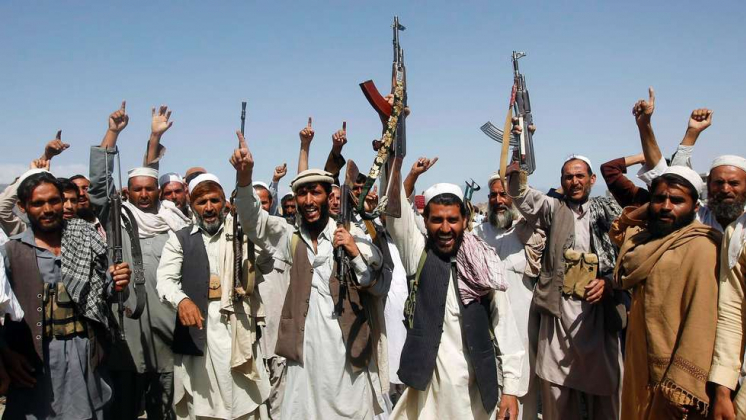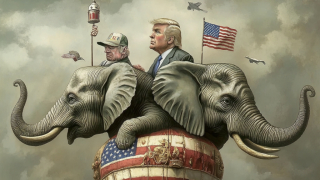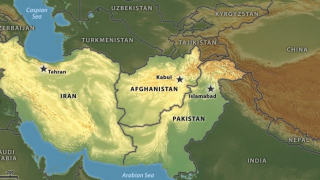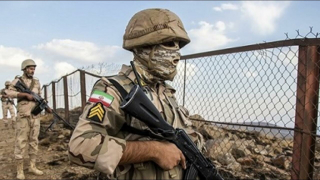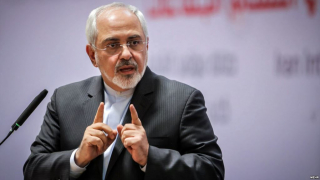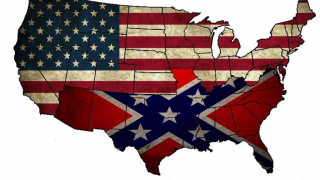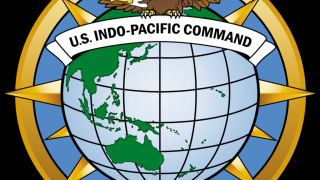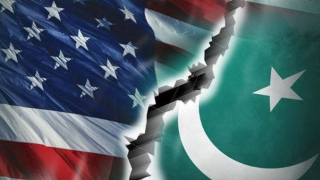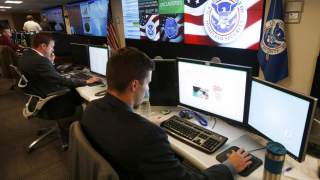The American Military Humiliated (Again)
The war in Afghanistan has been lost. There were no clear goals, no competent leadership and absolutely no understanding of the country. The US is an imperial power seeking to control the mineral wealth, drugs and potential oil pipelines through the country. On the other hand, the Taliban are quite popular and were the only force that was able to bring order to the country in decades. The US made sure that did not happen and flooded its own country with drugs in the process.
Worse, politicians and active duty soldiers give a stale litany of excuses for their loss. Pakistan is blamed for supporting the Taliban. The military, on the other hand, did not blame the USSR for its loss in Vietnam. Then, “rules of engagement” are blamed. The truth is, for almost 20 years, the “most powerful military force in the world” again lost to a loosely organized group of militants. Since when do military men make excuses for things? There is no excuse for this. The US is not a military superpower. It's a paper tiger.
Still, the US military is worshiped in American society. Thirty years go, the opposite was true. What changed? Only the enemy. Once nationalism became the target and liberalism the attempted result, suddenly “the troops” became “heroes.” Most of American still lives in a “Cold War” world where people think the military is fundamentally a conservative institution. It is anything but.
Gay pride days are mandatory on US military bases. “Walk in Her Shoes” feminist rituals are also required, as are “diversity day celebrations. Schriever Air Base runs the headline: “Diversity Day Showcases Variety of Cultures.” The military is liberalism's armed wing. Its behavior is proof. The Washington Times writes in their article “Armed Forces Plan to Celebrate LGBT Pride Month”:
But the Defense Department confirmed in a June 2 statement that it is “observing June as LGBT Pride Month to recognize DoD’s lesbian, gay, bisexual and transgender service members and civilians. The struggles, sacrifices and successes among the LGBT community continue to shape our history and remind us to uphold tolerance and justice for all,” said Anthony M. Kurta, a career federal government executive who is filing in as undersecretary of defense for personnel and readiness (Scarborough, 2017).
This is what the US imposes on nations it invades. But it gets worse: According to the Pentagon, reports of sexual assault from active-duty personnel went from 3,192 in 2011 to 3,374 in 2012. The real number is around 30,000. And this is only for the Marine Corps. This comes from a Pentagon report using anonymous sources. Usually, about 10 percent of these produce convictions. Camp Leatherneck in Afghanistan is a haven for prostitutes (Kovatch, 2013).
Beyond its behavior, fueled by public worship leading them to consider themselves invincible, their equipment crisis is just getting started. Presently, about half of the Navy's jets cannot fly. The Air Force is down over 2000 pilots and much of its firepower is grounded. Morale is at an all time low as desertion is at an all time high. Afghanistan did not help:
Yet from a strategic perspective, to say nothing of the human cost, most of these dollars might as well have been burned. “At this point, it is incontrovertibly evident that the U.S. military failed to achieve any of its strategic goals in Iraq,” a former military intelligence officer named Jim Gourley wrote recently for Thomas E. Ricks’s blog, Best Defense. “Evaluated according to the goals set forth by our military leadership, the war ended in utter defeat for our forces.” In 13 years of continuous combat under the Authorization for the Use of Military Force, the longest stretch of warfare in American history. . . they brought no lasting stability to, nor advance of U.S. interests in, that part of the world. When ISIS troops overran much of Iraq last year, the forces that laid down their weapons and fled before them were members of the same Iraqi national army that U.S. advisers had so expensively yet ineffectively trained for more than five years (Fallows, 2015).
The war is a total loss for the US as the motivated and hardened Taliban easily defeat the Afghan idiots. Mocking the US, several Taliban dressed like Afghan army soldiers and even pretended to have wounded. This squad of 10 militants drove in two army Ford Ranger trucks past seven checkpoints. They arrived inside northern Afghanistan’s largest military installation just as hundreds, perhaps thousands, of unarmed soldiers were emerging from Friday prayers and preparing for lunch.
For the next five hours, the militants, apparently unopposed, killed at least 140 soldiers in the deadliest known attack on an Afghan military base in this 16-year war. Some attackers blew themselves up among the soldiers fleeing for their lives. Five hours. No one shot at them (Mashal, 2017). This a failure of the US, though the press tries to make it only about the locals.
For all the veneration lavished upon American soldiers, they've failed miserably. The Pentagon states that, after almost 20 years, the war is at a “stalemate.” The US cannot call itself a superpower if it cannot win a war like this. The American fighting man has lost because he's the occupying army and the Taliban are the patriots. He's been defeated. Regardless, thousands of medals have been given out to US fighters for their failed effort.
Just like in Iraq, the US lies about its casualties in Afghanistan. This is common for most countries, though the US says its above such things. The fact is that to count as KIA, a soldier or marine has to die in front of everyone. Without witnesses, the soldier is no so listed. Many KIA are listed as wounded. Correspondence of soldiers is massively censored to avoid any leaks. Further, many KIA are listed as having drowned or otherwise killed by an accident. The US has a bizarre practice of shuffling soldiers from one hospital to another. This increases losses but has the main purpose of making death verification very tricky. The New York Times reported that all war data, including casualties, is presently censored by the Pentagon.
The Pakistani newspaper Frontier Post reported that over 3000 US soldiers were killed in Afghanistan in the first two years alone, yet, the Pentagon will admit to 3500 total since 2001. Of course, private contractors are never counted. The lack of an anti-war movement for a long lost war lasting so long is very strange and suggests these movements are created by the ruling class when the government – very different from the ruling class – is fighting an enemy the elites support.
One example of the American defeat is the Afghan National Army (ANA), long the deserving butt of jokes. This is for good reason. They have an appalling level of education since a large proportion of their recruits are from the poorest elements of Afghan society. The poverty from which these recruits spring is the reason why most are illiterate. Millions have been spent on literary classes in vain by NATO taxpayers. Militaries cannot function without functional literacy. Among those graduating from NATO classes, they function at roughly a third grade level.
Drugs are another plague. The Special Investigator General for Afghan Reconstruction reported that at least half of ANA men used drugs. They are poor performers and, due to their state of intoxication, find this appealing. Many men face temptations to steal supplies from the army. Fuel is their primary target. Their desertion rate is at 69% and rising.
In 2013, contractors finished work on Camp Leatherneck, a fully equipped, $34 million military base filled with all the luxuries other armies find astounding. The problem was that the new incoming command never asked for it. The Afghan “government” was offered the base, free of charge, but they were unable to afford the maintenance, and this is not the worst financial failure of the war (Salon, 2015).
The war was waged, to state the obvious, to gain access to the trillions of dollars of mineral wealth under Afghanistan. It gives the US military a border position with China and Iran. Yet, the real reason was in minerals.
The previously unknown deposits — including huge veins of iron, copper, cobalt, gold and critical industrial metals like lithium — are so big and include so many minerals that are essential to modern industry that Afghanistan could eventually be transformed into one of the most important mining centers in the world, the United States officials believe.
An internal Pentagon memo, for example, states that Afghanistan could become the “Saudi Arabia of lithium,” a key raw material in the manufacture of batteries for laptops and BlackBerrys. The vast scale of Afghanistan’s mineral wealth was discovered by a small team of Pentagon officials and American geologists. The Afghan government and President Hamid Karzai were recently briefed, American officials said (Risen, 2010).
The Soviets had determined all of this in the 1970s. As an active trading partner with the US, the Americans were well aware of these results. ISIS, the creation of the US, has been shipped into Afghanistan as a means to fight the Taliban as mercenary soldiers. Its a desperate cry of a broken and defeated country. Chief of Staff of the Iranian Armed Forces Maj. Gen. Mohammad Bagheri made this claim in early 2018. Any attack on civilians in Afghanistan can be blamed on “fighting Taliban,” since they wear no uniforms (John, 2015).
On February 1, Russian Special Envoy Zemir Kabulov warned that 7,000 ISIS mercenaries are active in Afghanistan. “We have been carefully monitoring the genesis of the Afghan wing of the ISIS over the past three years. ISIS has nearly 7,000 active fighters, without taking into account several thousands of reservists,” Kabulov told the Rossiya-24 TV channel. The Taliban presently fields a force of about 60,000 battle hardened soldiers. “This is a serious case. The ISIS members have come to Afghanistan not for Jihad against the US and other foreign troops; they have come to set up a foothold for their further expansion to the north, to Central Asia.” (Wadan 2018).
Hossein Amir-Abdollahian, a special adviser on international affairs of the Iranian Parliament, stated:
When Mosul in Iraq was under the Daesh occupation, an American A330 landed at Mosul Airport, American generals got off the plane and military equipment was unloaded. At the airport’s VIP lounge, the American generals talked with ISIS leaders in Mosul for three hours and 23 minutes and then boarded the plane and returned (SN, 2018).
The fact that anyone believes these “Hollywood bad guys” in ISIS are anything more than a western creation is frightening. Nothing occurs in the Mideast without the CIA or Mossad knowing about it. Yet, apparently, this massive army of trained fighters materialized out of nowhere with a fleet of oil tankers to help fund them. The US created them to do what its own military could not. The US doesn't have the money or men to wage constant war throughout the world. These mercenaries, labeled as “enemies,” are merely a poorly disguised cover for the CIA. Their refusal to attack targets allied with the US, including Israel or Saudi Arabia, is sufficient proof of this.
Johnson's Law states that the more obscure the county, the more journalists will feel free to lie about it, since so few can correct them. Another formulation is that, the more obscure a country, the higher the chance of errors in reporting, for the very same reason. The same goes for military media, academics and Defense Department hacks. We're told a “Taliban drug lab” is being blown up in a video. No one has any idea if those blocks on a radar screen are Taliban or not. No one can say for sure.
The chaos of the postwar social and political environment in Afghanistan created a power vacuum. It created forces that promised to stop the was and further destruction of the society. Led by Mullah Muhammad Omar, the initial Taliban organization emerged in the southern part of Kandahar Province in 1994 as a local response to the criminality that broke out when law and order broke down. They retain this role today.
Mullah Mohammad Omar with 50 students founded a group that became known as the Taliban in September 1994. Omar, having studied at the Sang-i-Hisar madrassa in Maiwand, realized that a strict regime was necessary to bring Afghanistan to some sense of normality. His group succeeded in its promise to rid Afghanistan of warlords and criminals. Their ideology was firm and simple. They had an eye for business, and bribery often worked where the gun didn't. By the mid 1990s, they had over 30,000 men. Pakistan sought a government receptive to its interests, and was one of the more important sources of funds in the group's early years.
In 1998, Iran accused Pakistan of sending its air force to bomb Mazar-i-Sharif in support of Taliban forces and directly accused Pakistani troops for “war crimes at Bamiyan.” The same year, Iran stated that Russia said Pakistan were responsible for military prowess of the organization. Iran claimed that Pakistan sent a large contingent of soldiers and advisers, some of whom had been taken prisoner the anti-Taliban United Front. Besides Pakistan and Russia, the Saudis too saw them as a counterweight to the Shia factions.
Even more, the American press largely suppressed the story that the Taliban were willing to place Osama on trial long before 9/11. He brought western pressure on the Taliban state that sought only the internal stabilization of the society. He was seen as an arrogant “troublemaker.” (Hammond 2010)
His previous bombings in Africa and the Middle East were crude exercises and nowhere near the sophistication showed at 9/11. Laden was blamed for these attacks, especially that on the USS Cole, and demanded the Taliban hand him over. Certainly, he was in no position to mastermind anything, as he was very ill and on nearly constant kidney purification. Minutes after the planes hit the towers, the press, in unison, announced that “bin Laden” was the mastermind. It was all too convenient.
Even before the [9/11] attacks, our Islamic Emirate had tried through various proposals to resolve the Osama issue. One such proposal was to set up a three-nation court, or something under the supervision of the Organization of the Islamic Conference [OIC], but the US showed no interest in it. They kept demanding we hand him over, but we had no relations with the US, no agreement of any sort. They did not recognize our government (Mashal, 2011).
American imperial arrogance was at work. Robert Grenier, the CIA station chief in Pakistan at the time of 9/11, confirmed this fact and affirmed that the offer had been made. Grenier said the US considered the offers to bring Bin Laden to trial a “ploy.” Now, there is precisely zero evidence that bin Laden had anything to do with the events of 9/11, events that only benefited the US war machine and ensured the continual presence of US soldiers in the region for the foreseeable future. How anyone could see this as a rational action for Osama or anyone else is a mystery. Further, the Taliban vehemently condemned 9/11 as an attack against innocent civilians.
The Taliban ambassador to Pakistan, Abdul Salam Zaeef, stated days before 9/11 that “the Taliban do not see Americans as their enemies and that there are no threats to Americans coming from the Taliban. Nonetheless, we will do our best to follow up and stop any threat. with regard to bin Laden.” This was also kept from the American population (Hammond, 2010).
When the Taliban took power in 1996, twenty years of continuous warfare had devastated Afghanistan's infrastructure. There was no running water, little electricity, few phones and almost no functioning roads. Even necessities like water, food and housing were either destroyed or not maintained. Worse, the clan and family structure that served as the social and economic safety net was also damaged by casualties and a lack of moral formation. Afghanistan's infant mortality was the world's highest. Almost 25 percent of all children died before the age of five, a rate many times higher than most developing states.
The Bookings Institute says:
By 2001, Pakistan was providing the Taliban regime in Kabul with hundreds of advisers and experts to run its tanks, aircraft and artillery, thousands of Pakistani Pashtuns to man its infantry and small units of its Special Services Group commandoes to help in combat with the Northern Alliance. Pakistan provided the oil needed to run the Taliban’s war machine (Riedel, 2011).
By the time the Taliban captured Kabul in September 1996, their ideology has crystallized and consisted of a number of significant elements. According to Marsden, they sought “the purification of Afghanistan” and were committed, in the words of Mullah Muhammad Omar, the Taliban supreme leader, to ridding Afghanistan of “corrupt,Western oriented time-servers.” This is part of their popularity.
These were aims to be achieved by military conquest, punishing any resistance with extreme violence. There was no other way. In a Radio Voice of Sharia broadcast of November 5, 1996, the Taliban asserted that they
emerged from the masses . . . to deliver their compatriots from pain and hardship, to ensure complete peace and security across the country by collecting weapons, by doing away with feudal principalities here and there in the country and by creating a powerful Islamic government in Afghanistan. [The liberal state] failed to adhere to the standards expected of an Islamic state (Marsden, 2008)
They claimed that the mujaheddin government had not enforced the needed sharia punishments fixed by law, sufficiently. Their foreign patrons supported major components of the Taliban ideology: a firmly nationalist, simple and a strict ideological conception of Islam suited to a war torn country. The Taliban had no choice but to centralize the law to the greatest extent possible and thereby remove local strongmen from power. This meant that certain customs, such as baad (using women as bargaining chips during clam disputes) or the use of khans to adjudicate cases rather than the court system, were proscribed.
Today, after almost two decades of American propaganda warfare, the Taliban, or the groups the Regime thinks are Taliban, are thriving. The US Air Force enjoys posting videos of its overpriced planes “destroying Taliban drug labs,” except that drugs are punishable by death under Taliban law. No one can say differently, so calling anyone you want to kill then becomes “Taliban.” It's the new American way of war. Its the way of the coward. The reason they cannot win, and why the US is in a permanent state of defeat, is that the Taliban is popular. The US is not.
The Kabul money markets responded positively during the first weeks of the Taliban rule, but the Afghani soon fell in value. They imposed a 50% tax on any company operating in the country, and those who failed to pay were attacked. In the absence of institutions, this was an unfortunate necessity (Rubin, 2002).
They also imposed a 6 percent import tax on anything brought into the country, and by 1998 had control of the major airports and border crossings which allowed them to establish a monopoly on trade. By 2001, the per capita income of the 25 million population was under $200. As of 2007, the economy recovered, with estimated foreign reserves of three billion dollars and a 13 percent increase in economic growth. The Taliban delivered the goods. They were the legitimate government and certainly had every disincentive to irritate the US.
Under the Transit Treaty between Afghanistan and Pakistan, a cross-border turnover of almost $3 billion was the result. Protecting this trade was the source of Taliban income. The Pakistani government, trained, armed, and financed the Taliban to clear the southern roads across Afghanistan to the Central Asian republics of bandit gangs. This only increased their popularity.
The Taliban had banned all forms of ostentation. In discussing a prohibition against men wearing gold and silk, for example, Yusef Qaradawi (2001) and other scholars includes as justification, “From the Quranic point of view, luxurious living leads to weakness among nations and to their eventual downfall; the existence of luxury is also an expression of social injustice, as only a few can afford luxurious items at the expense of the deprived masses of people.”
Talibanic condemnations of luxury often focused on its inherent corrupting quality, irrespective of its distribution in society. “Expensive and needless parties are given in the Islamic Emirate, which by itself is extravagant and unlawful according to the Sharia. Everyone in the future shall avoid doing so.” Both the Quran and Afghan national tradition were the sources of Taliban law (Rubin, 2002).
In areas controlled by the Taliban, all Western technological advances were destroyed. Moral rebuilding could not handle these western distractions. These had been used to demoralize the people before. It was not the medium, but the message that caused such anger. Capital punishment was used frequently. Due to the loss of this growing market, Washington would not recognize the government. It remains curious how Washington turned on them as they banned the growth of western media into Afghan society (Rubin, 2001).
The Taliban are not isolationist and have offered closer contacts with the rest of the world. These have largely been conditioned by the fact that there has been negative publicity about their implementation of Sharia law. Not recognizing that a strong hand is necessary to rebuild a war torn society whose moral code had been “life is cheap,” the wealthy, comfortable NGOs issued virtue signaling condemnations. Ulrich Fischer of the Green Party accused the Taliban of creating a “religious police state” and that Western countries should avoid official recognition of the Taliban.
The Constitution was supplemented by the common law. This is local custom and is connected to Sharia law, of course. Anything that rejected it would be very unpopular. These include harsh measures against all forms of family violence, fornication, adultery, divorce and usury. These would be popular in the country as it seeks to rebuild (Osman, 2001)
Such was the protest against them that World Bank refused to measure their economy. It appears as a blank spot on World Bank tables. Its banking system is the hawala, where western banking norms are rejected. The world-ruling banks cannot keep a tally on their work. Money is transferred through an informal web of hawala brokers. It is based on the honor system, and this is rarely thwarted. It works. No paper exists. As the system is informal and based on morality rather than power, it can operate even in the absence of western oversight. No records are produced.
Hawala is attractive to customers because it offers a fast and convenient transfer of funds, usually with far lower commissions than that charged by the Regime. Its advantages are most pronounced when there is a distortion between exchange rates. One cannot “bet” on currency with this system. Its transaction cost is minimal.
The Northern Alliance earned their income from continued opium production, which today is indistinguishable from CIA cash. Like Albania, drugs was all they had. By 2000 Afghanistan outside Taliban control accounted for an estimated 75% of the world's supply of heroin and other opiates. The US spread rumors that it was the Taliban who financed their war through opium as American troops guarded poppy fields for major drug manufacturers both licit and illicit.
Ahmad Shah Massoud and Abdul Rashid Dostum, long time rivals, were brought together with lots of CIA money to create the United Front, usually called the Northern Alliance, against the Taliban. The CIA was giving Massoud over $200,000 a month to organize. Osama bin Laden was never allied with the Taliban, and in fact, became an opponent of the group early on. Osama sees the Taliban as uneducated barbarians and his own group, now allied with the US in Syria, as an educated, cosmopolitan force for global change. The Taliban never threatened American interests and sought the good will of the US from its first victory. Their vision never left Afghanistan. It is a local, healthy nationalist force.
On July 6, 1999 president Bill Clinton signed executive order 13129 which banned any trade between America and the Taliban and in August they froze $5,000,000 of their assets abroad. On December 19 2000, UN resolution 1333 called for all assets to be frozen and for all states to close any offices belonging to the Taliban. This included the offices of the Afghan Airlines. This effort succeeded. In 1999, the UN had passed resolution 1267 which banned all international flights by Ariana Airlines. This was a deliberate destruction of a fledgling economy based on NGO rumors.
The Taliban wrote to the American people, concerning the liberal government the west imposed on the country:
Even though it is not the duty of America to draft laws and suggest systems for other countries but nevertheless, the second excuse of George W. Bush for the invasion of Afghanistan was to establish a supposed legitimate government. But despite seventeen years of war costing thousands of American and coalition lives and billions of dollars, such a system has taken root in Afghanistan which has achieved the following administrative, legal, military and political records:
Number one internationally in administrative and financial corruption.
Number one internationally in violating human rights.
Number one internationally in usurping of land and embezzling international aid.
Number one internationally in violence against women, etc. etc.
The latest example of the corrupt regime formed in the wake of American invasion is the presence of a two-headed system which is unparalleled in the established laws of forming a government throughout the world (Taliban, 2018)
They speak the truth, as usual. While this writer is no friend of Islam, it is the only reasonable hope for this war torn country. As the Taliban torched poppy fields, support from the UN grew as well. Even in their poorer, early days, they refused to take any money from that nefarious crop. The Taliban takeover of Kandahar provided them with their local foundation to take most of the country. They offered moral clarity and the promise of a just and safe society stemming from Islam. At this point, a strict, harsh state is precisely what such a country needs after being psychically scarred by decades of war.
The US military are thugs protecting drug dealers:
The occupation forces in Afghanistan are supporting the drug trade, which brings between 120 and 194 billion dollars of revenues to organized crime, intelligence agencies and Western financial institutions.
The proceeds of this lucrative multibllion dollar contraband are deposited in Western banks. Almost the totality of revenues accrue to corporate interests and criminal syndicates outside Afghanistan.
The Golden Crescent drug trade, launched by the CIA in the early 1980s, continues to be protected by US intelligence, in liaison with NATO occupation forces and the British military. In recent developments, British occupation forces have promoted opium cultivation through paid radio advertisements.
“A radio message broadcast across the province assured local farmers that the NATO-led International Security Assistance Force (ISAF) would not interfere with poppy fields currently being harvested.
“Respected people of Helmand. The soldiers of ISAF and ANA do not destroy poppy fields,” it said. “They know that many people of Afghanistan have no choice but to grow poppy. ISAF and the ANA do not want to stop people from earning their livelihoods.” (Chossudovsky, 2007)
The swaggering, tough-guy American soldiers and airmen march home to parades while the world is flooded with opiates they made possible. These drugs are for illicit, not legitimate, purposes and even the legitimate purpose is questionable. The market is flooded with poppy derivatives used in legal painkillers, but far more is actually harvested:
How much opium acreage is required to supply the pharmaceutical industry? According to the International Narcotics Control Board (INCB), which has a mandate to examine issues pertaining to the supply of and demand for opiates used for medical purposes, “the supply of such opiates has for years been at levels well in excess of global demand.” The INCB has recommended reducing the production of opiates due to World oversupply (Chossudovsky, 2007).
The American military do not seem so heroic anymore. They are the direct cause of the opiate crisis in America and no amount of fake Bronze Stars can cover over this fact. Since the US invasion, the amount of opiates exported from that country has grown over 21 times. The profits go to multinationals, the military brass, military contractors, and crime syndicates, all working together as a ruling coalition. The local farmer gets nothing.
There were 189,000 heroin users in the US in 2001, before the US-NATO invasion of Afghanistan. By 2016 that number went up to 4,500,000 (2.5 million heroin addicts and 2 million casual users). Heroin deaths shot up from 1,779 in 2001 to 10,574 in 2014 as Afghan opium poppy fields metastasized from 7,600 hectares in 2001 (when the US-NATO War in Afghanistan began) to 224,000 hectares in 2016. (One hectare equals approximately 2.5 acres). Ironically, the so-called US eradication operation in Afghanistan has cost an estimated $8.5 billion in American taxpayer funds since the US-NATO-Afghan war started in October 2001 (Chossudovsky, 2010)
There is no denying that “the troops” are little more than overpaid drug dealers. It is a common misconception that the US gets its heroin from Mexico. That figure only refers to the finished product. The poppies are from Afghanistan roughly 90 percent of the time. Mexico is a transit point. The UNODC states that about 60 percent of the poppy crop in Afghanistan is made into heroin. The Marines admitted – in an interview with Gerardo Rivera – that they refuse to destroy the opium trade because it would turn the population against them. He also admitted that they had no idea who is Taliban and who is merely Islamic.
The author of “Where Have All the Flowers Gone?” writes:
In July 2000, Taliban supreme leader Mullah Omar announced a fatwa or religious decree stating that poppy cultivation and opium production violated fundamental Islamic tradition. Any lack of respect for such a decree would reflect upon the religious leadership of Mullah Omar and the strength of Taliban rule. With personal reputation and international political favor at stake, there was a sharp incentive for implementation throughout the Taliban chain of command. District administrators created monitoring group shuras in their territories. Shuras consisted of the chief of police, the chief of the Vice and Virtue Department, spiritual leader ulemas from local mosques, and tribal elders. From September to October 2000, shuras disseminated information about the fatwa and its enforcement to local farmers, urging them not to cultivate poppy in the upcoming season. After October, shuras were the primary enforcers of the ban, for which they were well placed because they had local knowledge of poppy farming, farmers and families. If enforcement slackened and was subsequently discovered by Taliban officials, shuras endured identical punishment as violators. Motivated by this threat, shuras complied with their mandate with swift, and often brutal, efficiency. The good local knowledge and community contacts of the members of the shuras plus their accountability are the active ingredients that ensured widespread and pro-active implementation of the enforcement action (Farrell, 2001).
This fatwa is still in force and Taliban members would never break it. Of course today, it has long surpassed its peak production figures of 60,000 hectares of poppies which can produce 2,800 tons of opium. This is about 60 percent of the world's output. A recent UN Report confirms that opium production plummeted in Afghanistan under Taliban rule, except in Northern Alliance areas, thanks to the Taliban fatwa (Salopek, 2001).
During the ban imposed by the Taliban, the only functional source of poppies was the territory held by the Northern Alliance. It tripled its production almost immediately after the invasion. In the high valleys of Badakhshan – an area controlled by militias under the former President Burhannudin Rabbani – the number of acres planted after the American invasion went from 2,458 to 6,342 (Salopek, 2001, among many others). The fields under the control of the US military accounted for 83 percent of total Afghan production. Yet, the press spouts the Pentagon's line that the Taliban are selling drugs.
In October of 2001, the United Nations Office for Drug Control and Crime Prevention released its UNDCP Afghanistan Annual Opium Poppy Survey 2001. This confirmed press stories that since December of 2001, opium had been totally eradicated in the country. Prices went up, so the Alliance had every incentive to grow more and more under the watchful eye of green, arrogant American soldiers.
The following paragraphs are reprinted from the Report:
In July 2000 the Taleban [sic] authorities banned the cultivation of opium poppy throughout all areas under their control. In November/December 2000, reports from Afghanistan suggested vigorous implementation of the ban by the authorities. Early in February of this year, UNDCP carried out a Preassessment Survey to obtain an early quantitative assessment of the area of poppy cultivation, and to determine the degree of compliance with the ban. Subsequently, in May 2001, a delegation of UNDCP major donors undertook a mission to the main poppy cultivating areas of Afghanistan to, inter alia, assess the effectiveness of the ban first hand. Both the Preassessment Survey and the UNDCP Donor Mission observed the near total success of the ban in eliminating poppy cultivation in Taliban controlled areas. This finding has been confirmed by the Annual Opium Poppy Survey.
Cultivation: An estimated 7,606 hectares (Ha) of opium poppy was cultivated in Afghanistan during the 2001 season. This represents a reduction in total poppy area of 91% compared to last year's estimate of 82,172 Ha. Helmand Province [under Taliban], the highest cultivating area last year with 42,853 Ha, recorded no poppy cultivation in the 2001 season. Nangarhar [under Eastern Shura], the second highest cultivating province last year with 19,747 Ha is reported to have 218 Ha this year. Almost all major former poppy growing provinces had no poppy or relatively small areas under cultivation this year. The reductions are clearly the result of the implementation of the opium poppy ban (UN, 2002).
There is no other survey that has the manpower or scrupulousness of this UN team. Yet, journals like the Nation have headlines that read “Heroin: The Drug that Makes the Taliban Possible.” Frightened of possible repercussions, the authors of a survey on poppy production have stated that the Taliban's success in destroying the drug does not imply support for their “totalitarian theocratic” regime.
Drugs were one reason for the ill-fate American jaunt in Afghanistan. There was another. Pakistan thus became an important mediator in the construction of two giant pipelines: The American Unocal and the SaudiDelta oil companies sought contracts to build pipelines worth over $4 billion. With help from Unocal’s lobbying efforts in Washington, the United States gave the green light to Islamabad to go forward in supporting the Taliban, which had been introduced by Pakistan as a “traditionalist” stabilizing force in the chaos of Afghanistan.
SaudiDelta served as the mediator for the financing, and supplies included several hundred Toyota pickup trucks. The role of America was vague until, in a BBC interview, Benazir Bhutto admitted far too much, explaining that her government had trained the Taliban in Pakistan with indirect American financial assistance. Quite often, US ignorance served the Taliban very well.
Usually, capital likes a weak, liberal state – a republic – that it can easily penetrate and manipulate. They hate dictators and military governments because they're usually patriotic and often nationalize strategic industries. Afghanistan presents a very different problem. For the short term, the Islamic government was sufficient, but it was clear it would make way for a total secular state later. Stable governments like Saudi Arabia are tolerated because, despite their structure, they proved very easy to manipulate. This, however, is an exception to the rule.
Ranjit Devraj writes:
Not only can Afghanistan play a role in hosting pipelines connecting Central Asia to international markets, but the country itself has significant oil and gas deposits. During the Soviets' decade-long occupation of Afghanistan, Moscow estimated Afghanistan's proven and probable natural gas reserves at around five trillion cubic feet and production reached 275 million cubic feet per day in the mid-1970s. But sabotage by anti-Soviet mujaheddin (freedom fighters) and by rival groups in the civil war that followed Soviet withdrawal in 1989 virtually closed down gas production and ended deals for the supply of gas to several European countries (Devraj, 2001).
As the US spirals into deeper and deeper levels of economic and emotional depression, the Regime needs to find both sources of national unity and cheap fuel. This does both. It failed on both counts. Hence, economics was the reason for the invasion of Afghanistan. Few deny this.
Another Indian writer, Sitaram Yechury says:
Among the many advantages of the Afghanistan [pipeline] route. . . is that it would terminate in the Arabian Sea, which is much closer than the Persian Gulf or northern China to key Asian markets. The pipeline becomes crucial for U.S. oil giants because it would allow them to sell their oil in an expanding and highly prospective Asian market. The profits here are viewed to be substantially higher than in the European market. But, the construction of this promising route can only begin if and when an internationally recognized Government is formed in Afghanistan (Yechury, 2001).
As these campaigns have failed and Afghanistan moves to the ever-popular Taliban, the west has moved to picking fights it cannot win in Russia and China. Its a form of national suicide; the US is killing itself economically and militarily.
There can be no doubt as to the conclusion here. Its one that's been made many times before. The United States bit off far more than it could chew. Fed propaganda that the United States possessed an invincible military, politicians used it to line their own pockets, troops serving as the bodyguard for the ruling class. Yet again, the arrogant US soldier has been defeated, though he still sports a chest heavy with medals.
Importantly, the Taliban have proven themselves to be the most rational alternative to Afghan reconstruction. This is because they offer a simple, strict regime that would do away with the drug trade. They are tightly organized and well funded. They are battle hardened and most of all, they are patriots fighting an invader. Yet again, Afghanistan has proven to be the graveyard of empires, the last two being the USSR and the USA. Vietnam too, saw the defeat of France only to seem attractive to the US, as if they had a secret plan the French did not. In both cases, the US military acted arrogantly, with the assumption that they were the vanguard of a superior civilization. They were ripped to pieces.
____
Bibliography:
Chossudovsky, Michel (2010) The Spoils of War: Afghanistan’s Multibillion Dollar Heroin Trade. Center for Research on Globalization
Chossudovsky, Michel (2007) Heroin is “Good for Your Health”: Occupation Forces support Afghan Narcotics Trade. Center for Research on Globalization
Devraj, R (2001) The Oil Behind Bush and Son's Campaigns. Asia Times, October 6
http://www.atimes.com/global-econ/CJ06Dj01.html
Falows, J (2015) The Tragedy of the American Military. The Atlantic, January/February
Rick, John (2015) I Fought for Nothing: Staggering Incompetence, Egregious Corruption and America’s Doomed War in Afghanistan. Salon
Mashal, M (2017) Taliban Slaughter at Afghan Base a Grim Symbol of Failing Military. Seattle Times
Qaradawi, Yousuf A (1982) The Lawful and the Prohibited in Islam. Islamic Book Service
Osman, B (2016) Taliban Views on a Future State. Center on International Cooperation: New York University
http://cic.nyu.edu/sites/default/files/taliban_future_state_final.pdf
United Nations International Drug Control Program. Afghanistan Annual Opium Poppy Survey 2001
https://www.unodc.org/pdf/publications/report_2001-10-16_1.pdf
Farrell, G. (1998). A Global Empirical Review of Drug Crop Eradication and United Nations Substitution and Alternative Development Strategies. Journal of Drug Issues, 28(2), 395–436
Reuter, P. (1996). The Measurement and Mismeasurement of the Global Illicit Drug Trade. In S. Pozo (Ed.), Exploring the Underground Economy: Studies of Illegal and Unreported Activity. Kalamazoo, MI: W.E. Upjohn Institute for Employment Research
Rubin, MR (1999, February). Afghanistan Under the Taliban. Current History 79–91
Rubin, MR. (2002). Who is responsible for the Taliban? Middle East Review of International Affairs, 6(1), 1–16
Salopek, P. (2001, December 26). With the Taliban Gone, Poppy Crops Return. Chicago Tribune
Farrell, G (2005) Where Have All the Flowers Gone? An Evaluation of the Taliban Crackdown against Opium Poppy Cultivation in Afghanistan. International Journal of Drug Policy 16, 81–91 91
Wadan, M (2018) U.S. Supports the Influx of ISIS Terrorists into Afghanistan. Massive U.S. Bombings Directed against the Taliban. Center for Research on Globalization
Kovatch, G (2013) Sex Crimes Flood Marine Docket. San Diego Union Tribune
Hammond, J (2010) Newly Disclosed Documents Shed More Light on Early Taliban Offers, Pakistan Role. Foreign Policy Journal
Risen, James (2010) U.S. Identifies Vast Mineral Riches in Afghanistan. New York Times
http://www.nytimes.com/2010/06/14/world/asia/14minerals.html
Riedel, B (2013) Pakistan, Taliban and the Afghan Quagmire. Brookings Institute
https://www.brookings.edu/opinions/pakistan-taliban-and-the-afghan-quagmire/
Marsden, P (1998) The Taliban: War, Religion and the New Order in Afghanistan. Palgrave
Iranian General Wants to 'Slap West in Face' With Proof of US-Daesh Cooperation. Sputnik News, 2018
Letter of the Islamic Emirate to the American People. Islamic Emirate of Afghanistan (Taliban), 2018
https://alemarah-english.com/?p=25640
Schriever Air Base (2016) Diversity Day Showcases Variety of Cultures. 50th Space Wing Public Affairs
Scarborough, R (2017) Armed Forces Plan to Celebrate LGBT Pride Month. Washington Times
https://www.washingtontimes.com/news/2017/jun/5/armed-forces-plan-to-celebrate-lgbt-pride-month/
How to Hide American Military Losses. Voprosek (in Russian) 2016
http://voprosik.net/kak-skryvaet-poteri-armiya-ssha
Yechury, S (2001) America, Oil and Afghanistan. The Hindu
http://www.thehindu.com/thehindu/2001/10/13/stories/05132524.htm

